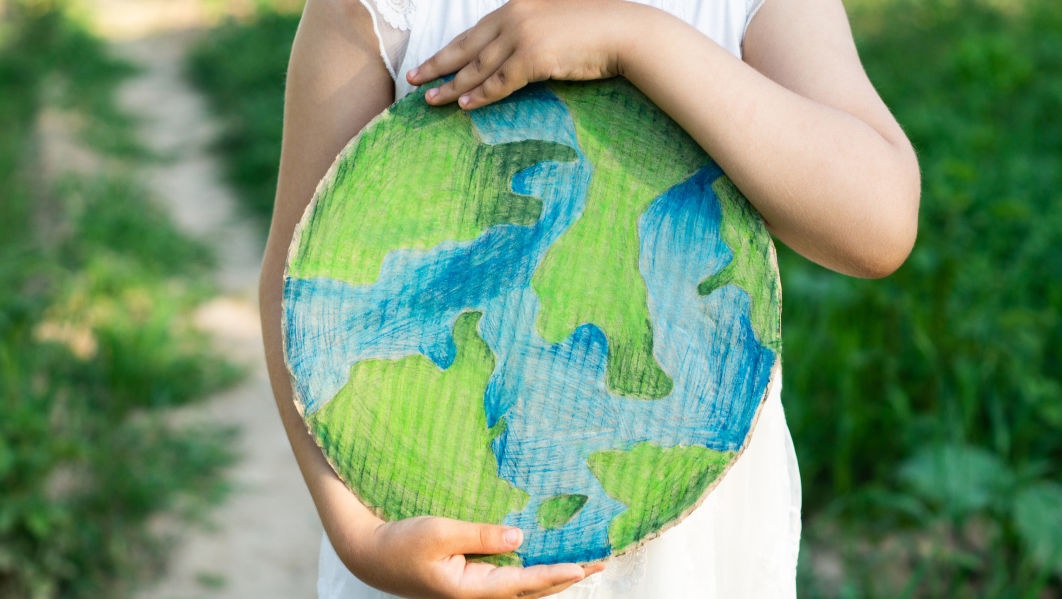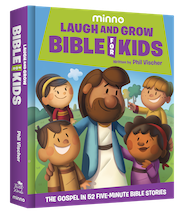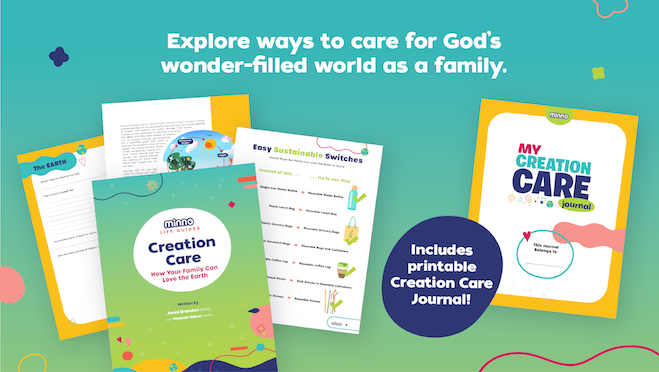Creation Care for Kids: How Your Family Can Love the Earth

This season, I am determined to explore every inch of this backyard—seeing the bugs crawl across the rocks, feeling the warm sun on my face, learning what time of day the birds chirp the loudest, knowing which plants are about to blossom next. When life gets busy, I am reminded of the calming words of Matthew 6:25-34, that though we may be anxious about today and tomorrow, the lilies of the field and the birds in the sky continue to be provided for by their loving God, and we are also taken care of by Him.
But though the Bible makes it clear that the Lord created all the beauty and splendor of nature around us (Genesis 1, John 1:3, Psalm 95:4-5, Psalm 104), He also asked us to be partners and stewards of that creation with Him (Genesis 1:26, Genesis 2:15, Psalm 104:14-15). In fact, it is the first commandment He ever gives Adam, before He even made Adam a helper or commanded Adam and Eve to be fruitful and multiply (Genesis 2:15 vs. 2:18). And that is where the problem lies. He gave us this beautiful land to tend and keep, but it seems we haven’t kept up our end of the bargain.
The earth is changing, and not for the better. We have lost over half the world’s rainforests, and tropical deforestation contributes to 16-19% of the world’s greenhouse gas emissions every year. The ocean is two degrees warmer than it was before the Industrial Revolution, leading to species loss, bigger storms, glaciers melting, and sea-level rise. Plastic has only been popular since the early 1950s, and yet today there are well over 5 trillion pieces of plastic floating in our ocean, and we are adding 8 million tons of plastic to the ocean every year. It is estimated that over 75% of the world’s coral reefs have bleached due to the ocean becoming too warm and acidic due to climate change. Taken all together, these facts paint a grim picture of just how much we haven’t been the stewards of this planet God asked us to be.
But it doesn’t have to be this way. We can change our behaviors and help Creation bounce back. If there is a silver lining to the world slowing down and staying in during the Covid-19 pandemic, it is that we have taken a Sabbath of sorts, and given the Earth a time to heal. And heal it has. Air quality is better around the world. The air is so clean that people in Delhi, India are seeing the Himalayas for the first time in decades. The water is the cleanest it has been in Venice in 60 years, and the animals are taking notice; fish, swans, and even dolphins have been spotted! Coyotes have been seen tiptoeing back into San Francisco, where they once roamed free. Vancouver Harbor is five decibels quieter than it was three months ago, a huge blessing for the whales and dolphins that call it home.
God created this beautiful planet for us, as a gift, and to show His splendor and majesty (Psalm 19:1, Isaiah 45:23-4, Hebrews 11:3, Colossians 1:15-17). We are called to care for it. This is as important as anything else God asks us to do, like to love our neighbor, because it is a gift we were given to steward over. Much like the parable of the talents (Matthew 24:14-30), we can waste away what He has entrusted to us, or we can care for it with love for the Giver and the gift.
How can we love the earth, and teach kids to love it too?
- Take a gratefulness nature walk. Take a walk around your neighborhood or around your backyard, and notice all the little pieces of creation all around you. Thank God for each and every one. Stop and smell the roses, literally!
- Take care of creation. How can we help creation, especially when the problems of pollution and climate change seem like too big of problems to begin to tackle? Start small. Plant a garden, learn to recycle, start a worm bin and watch the worms take what we see as waste and turn it back into beautiful soil.
- Waste not, want not. Challenge your family to create less food waste this week. Get creative in the kitchen and use up those scraps. Even do some fun science experiments and re-sprout the base of your green onions and lettuce. It is estimated that a third of food is wasted, so this is a great place to start!
- Eat less meat. Many scientists agree that the single greatest thing an individual can do to fight climate change is to reduce their meat intake, as livestock may contribute up to 50% of greenhouse gas emissions. What if your family started eating Meatless Mondays? What conversations could that lead to, about doing your part for God’s earth?
. . . . . . . . . .
Next Post in the Series: How to Steward the Gift of Water
. . . . . . . . . .
Caring for God’s amazing creation can feel like a really big job! But you don’t have to memorize statistics, understand the latest science, or even dramatically change your lifestyle to care for the earth. Creation care can start with simple habits and just being aware . . . that God created the earth and every amazing thing in it, and that we are called to take care of His creation.
Our latest Minno Life Guide: Creation Care: How Your Family Can Love the Earth, written by Jenni Brandon, Ph.D. and Senior Scientist at Applied Ocean Sciences, will help your family discover small changes that will make a big impact on the beautiful world God made.
- Learn scientific facts about our land, air, water, plants, and animals and how they are changing for the good and not-so-good.
- Discover ways your family can make small changes to help conserve our resources.
- Engage in conversations and simple creation care practices with the ideas and prompts in this guide.
- Use the included Creation Care Journal to guide kids on a journey of exploration into the wonderful world God made and their opportunity to steward it well.
Visit the Minno Store to get your Creation Care Life Guide!
. . . . . . . . . .

Jenni Brandon received her Ph.D. in Biological Oceanography at Scripps Institution of Oceanography in December 2017, focusing on the nascent field of marine microplastics. She is an expert in quantifying and identifying marine microplastics and has developed multiple novel methods to identify the spatial and temporal ranges of microplastics and determine the age of plastics exposed to varying weathering conditions in the environment. She is passionate about the world of science communication, having given hundreds of interviews and talks to all types of stakeholders, and was a college lecturer on communicating science to the public during her post-doc at Birch Aquarium. She is active in her church and serves as a Young Life committee member in Encinitas, California. For more of her personal outreach articles and articles about her research, please check out www.jenniferabrandon.com or follow her on twitter at @PlasticsJenni.
. . . . . . . . . .
More resources and fun to get your family excited about Creation Care:
Minno Resources About Creation
The Wonderful World of Science with Dr. Schniffenhousen

The Minno Laugh and Grow Bible for Kids
